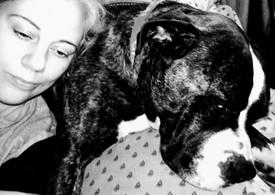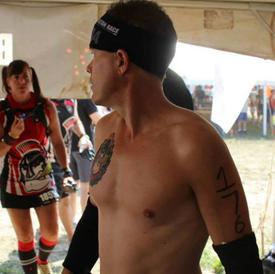How long would it take!!!
Options

etmeum
Posts: 23
I just recently started going back to exercising and now face this period that I always hate the most. Whenever I start to exercise again, my weight would plateau or even go up for a period of time. I get extremely hungry all the time, which makes it harder. I know that it is normal, as I start to build up muscles. It is just a little demotivating when I am trying to control my diet but not seeing any results in number. The difference this time compare to before is that I have a lot more weight to lose. (I just gave birth not long ago and am trying to lose the pregnancy weight.)
Obviously I don't want to stop exercising. How long would it take before I start to see my weight going down again? Do you have any tips to manage the motivation?
Obviously I don't want to stop exercising. How long would it take before I start to see my weight going down again? Do you have any tips to manage the motivation?
0
Replies
-
is your aim to see smaller numbers on the scale or is your aim to lose body fat and be healthy?
exercise will not make you gain fat, so the numbers going up is either water or muscle.0 -
I wish I had the answer for you - my wife goes through the same thing when she starts to add exercise to her diet, and often it causes her to get discouraged and she doesn't stay with the exercise. And (I know this seems really unfair), it seems like men's weights respond more readily than women's do - don't really know why, but it seems like women have to stay with the exercise/diet longer before they start to see the numbers drop.
I can tell you this - the one time that my wife was able to sustain her exercise (even ran several 5K races over the course of 2 years of consistent exercise), she got down to her college weight for the only time since we've been married. She has dieted on and off since then, but never matched the success she had when she was exercising regularly.
I know it has to be discouraging for you, but stick with it. The results will never come as quickly as we would like, but they will come. Good luck!0 -
Maybe you should put that scale away and base your weight gain/loss on how your clothes fit. We focus too much on what that scale says and it has a negative impact on our mood if it doesn't go how we want it to. Just a thought.0
-
What approach are you taking to your weightloss? Calorie counting? If so, you need to increase your calorie intake to off-set those burned by exercise. The two together will increase your metabolic rate and you will lose weight in a healthier, more sustainable way. You may gain weight by increasing muscle so maybe you should try measuring your progress through body measurements or % of body fat rather than just weight.
If hunger is still a major issue, maybe you are simply not eating enough? Eat a greater amount of clean, high fiber foods (fruit, veg, salad etc). It is better to lose 1 lb a week in a moderate way than 4 per week by starving your self - you will put it back on!! Also try eating every 2-3 hours. I lost 51lbs this way and am now using the same approach to lose the last 10 lbs.
If you have just had a baby, the hormone changes in your body will take up to a year to normalise again - don't be hard on yourself - look what your amazing body has just achieved!0 -
One of the ways your body responds to increases in exercise is to store more glycogen in muscle tissue in anticipation of more energy demands. One gram of glycogen bonds with 3 g of water which often accounts for a temporary bump in weight. A little OT but it's not unusual for endurance athletes carb loading before a race to gain 1 or 2kg as a result of the increased glycogen storage.
The increased hunger is perfectly normal.........you're burning more fuel and your body wants you to top up the tank. There's a runners slang term for feeling hungry after a long run......you're rungry!0 -
You sound like the type who would do better by throwing your scale out the window and not buying another one for like a year. I'm not kidding. Just make the right decisions about food and exercise, take measurements every now and then, buy new clothes when you need them, and don't worry about what the scale says. If you're doing the right things consistently, the weight is going to come off.0
-
There are many questions that you need to answer before anyone can give you any solid advice.
1. Do you eat at a deficit?
2. You said that you recently got back in the gym, but that your weight would plateau or go up. What's the time frame for this?
3. Do you lift? What's your routine look like?
That just some of the information you should be giving us.0 -
If this occours everytime you "get back into exercising", it sounds like it's probably water retention. I don't know what your routine is, so it's hard to say. You can have some noob muscle gain, but it shouldn't stall you out or make the scale go up, especially after dropping ~4lbs already.0
-
There are many questions that you need to answer before anyone can give you any solid advice.
1. Do you eat at a deficit?
2. You said that you recently got back in the gym, but that your weight would plateau or go up. What's the time frame for this?
3. Do you lift? What's your routine look like?
That just some of the information you should be giving us.
More information about myself.
1. I have been following 1300 calories diet. Honestly, it is my first time counting calories since I joined MFP. Not sure if it is right for me or not.
2. I used to go to gym. But, I switched to hot yoga 1.5 years ago and never went back to the gym. I gained more muscle definition and felt better when I started doing hot yoga. I now do yoga 3 times a week and brisk walk 2 times a day.
3. Again, I don't life. I focus on doing yoga.
Last time I started doing yoga, I gained 4 pounds and never lost it. However, my husband said that I was looking the best since he met me. I also felt strong and that's why I decided to start doing yoga as soon as my body is ready after the labor.0 -
Ignore the scale and read this article...
Why the Scale Goes Up When You Start a New Workout Plan
By Chalene Johnson
Probably the most common question I get when I release a new exercise program is, "Help! I'm gaining weight! Am I doing something wrong?" This is a common phenomenon with any new exercise program, such as Turbo Kick, Turbo Jam, Hip Hop Hustle, or others! It's especially common (and temporary) with intense strength training programs like ChaLEAN Extreme or Tony Horton's P90X.
The motivation to start a new exercise program is almost always to lose weight. However, what most personal trainers know--and most at-home exercisers do not--is that a new exercise program often can cause an immediate (and temporary) increase on the scale. (Notice I didn't say weight gain! I'll explain.) This common increase in the scale is also the reason why perhaps millions of people start and then quickly quit their resolution to get fit.
The temporary weight gain explained:
When someone starts a new exercise program, they often experience muscle soreness. The more intense and "unfamiliar" the program, the more intense the muscle soreness. This soreness is most prevalent 24 to 48 hours after each workout. In the first few weeks of a new program, soreness is the body trying to "protect and defend" the effected or targeted tissue. Exercise physiologists refer to this as delayed-onset muscle soreness, or DOMS.
This type of soreness is thought to be caused by tissue breakdown or microscopic tears in muscle tissue. When this happens, the body protects the tissue. The muscle becomes inflamed and slightly swollen due to fluid retention. This temporary retention of fluid can result in a 3- to 4-pound weight gain within a few weeks of a new program. Keep in mind that muscle soreness is not necessarily a reflection of how hard you worked. In fact, some people feel no signs of muscle soreness, yet will experience the muscle protection mechanisms of water retention and slight swelling.
Most people are motivated enough to put up with this temporary muscle soreness. Yet, many, especially those who really need immediate weight loss to keep them motivated, become discouraged and quit!
When I worked with a group of 70 test participants during the development stages of ChaLEAN Extreme, this happened. Who was the most upset and discouraged? You guessed it... the women! I'm happy to report absolutely for every single woman (and man) in our group, the weight increase was temporary and never lasted more than two weeks before they started to see a major drop in the scale. However, these people had the advantage of working with someone who was able to explain to them why this was happening and assure them the weight would come off if they stuck to the nutrition plan and stayed true to the program.
If you follow a multi-phase exercise plan, such as ChaLEAN Extreme, keep in mind that when you start each phase, your body will be "in shock" again. Don't be surprised or discouraged if you experience a temporary gain on the scale the first week of each phase.
My own personal example of this is running 10Ks. I don't do it very often, maybe once or twice a year. Even though I run on a regular basis, when you run a race, you push much harder. It's natural for me to be insanely sore the next day. It’s also very common for me to see the scale jump 4 pounds the next day from forcing fluids post race and the resulting DOMS. Even though I know the cause of it, it's still a bummer. We're all human and hard work should mean results. Hard work equals results, but our bodies are amazing machines and they know how to protect us from hurting ourselves. Soreness forces you to give those muscles a break. Ultimately you will lose the weight and you will change your metabolism in the process.
The key is understanding that this is a normal and temporary and stick with the program!0 -
One of the ways your body responds to increases in exercise is to store more glycogen in muscle tissue in anticipation of more energy demands. One gram of glycogen bonds with 3 g of water which often accounts for a temporary bump in weight. A little OT but it's not unusual for endurance athletes carb loading before a race to gain 1 or 2kg as a result of the increased glycogen storage.
The increased hunger is perfectly normal.........you're burning more fuel and your body wants you to top up the tank. There's a runners slang term for feeling hungry after a long run......you're rungry!
Yup. I'm about 3 weeks into a "plateau", well, I've actually gained a pound, but am on a smaller belt hole. Just give it time, drastic increases in training volume and intensity will stall things out a bit.
I'm just not sure how much time to give it. If you find you're eating more, make sure it isn't constantly more, and in significant amounts. Remember, eating rules still apply.0 -
After reading everyone's reply, I am seriously considering not weighing myself for at least 2 weeks. I tried this before and did not work for me. I often need the scale to motivate myself. But, this time might work for me, since I have MFP as a motivational tool...0
This discussion has been closed.
Categories
- All Categories
- 1.4M Health, Wellness and Goals
- 394.3K Introduce Yourself
- 44K Getting Started
- 260.5K Health and Weight Loss
- 175.6K Food and Nutrition
- 47.6K Recipes
- 232.7K Fitness and Exercise
- 442 Sleep, Mindfulness and Overall Wellness
- 6.5K Goal: Maintaining Weight
- 8.6K Goal: Gaining Weight and Body Building
- 153.3K Motivation and Support
- 8.1K Challenges
- 1.3K Debate Club
- 96.4K Chit-Chat
- 2.5K Fun and Games
- 3.2K MyFitnessPal Information
- 16 News and Announcements
- 18 MyFitnessPal Academy
- 925 Feature Suggestions and Ideas
- 2.7K MyFitnessPal Tech Support Questions








